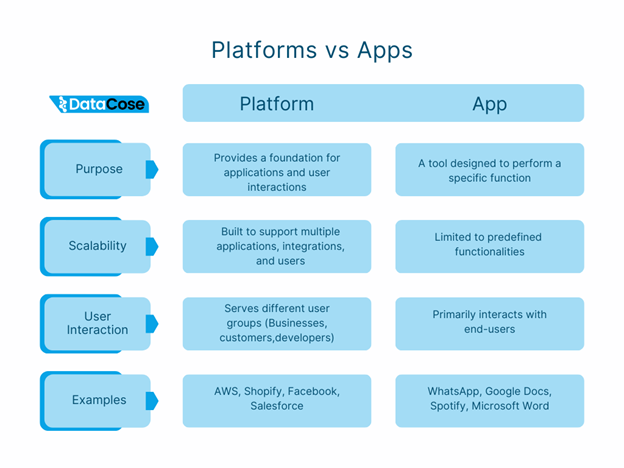 |
| By Chris Graebe |
When the software era rewrote the rules of tech, the biggest winners weren’t the apps.
The platforms were the victors.
After all, Amazon didn’t become a $2 trillion company by selling books.
It did so by building the infrastructure that allowed millions of other businesses to sell everything else. In other words, it built the platform.
And Android didn’t dominate mobile just by building apps — it did so by creating an OS and software tools that would come to define the industry, giving third-party developers everything they needed to build them.
These platforms didn’t just capture markets — they created new ones.

That same model, the platform model, is now taking hold in a place most investors wouldn’t expect: Biology.
Biology as a Platform
In a general sense, biology itself is now a platform.
With the help of cutting-edge tools, DNA can now be written and edited with precision, allowing cells to be programmed like software.
This marks a real paradigm shift.
Moving forward, biology won’t just be something we study — it will be something we engineer, reprogram and scale.
But within that broader shift, a second opportunity is taking shape, one that investors should be tuned into …
Right now, there are already companies on the market building the tools that enable scientists and entrepreneurs to design biology on their platforms.
Just like Amazon, Android and Shopify before them, these companies are the development engines that can spin up new therapies, materials or microbes again and again, across markets.
What Makes Biology ‘Programmable’ Now
Until recently, biology was something we observed — not something we built.
But now, thanks to breakthroughs in synthetic biology, gene editing and DNA synthesis, it’s something we can shape and mold.
So, what changed?
For years the concepts and tools to program biology existed, but they just weren’t as cost-effective or sophisticated as they are today.
For example, most of us remember the Human Genome Project, which took 13 years and $2.7 billion to sequence a single human genome.

Today, commercial labs can sequence a human genome for around $600.
CRISPR, a gene-editing tool, has existed since 2012 but only recently gained the precision, delivery methods and commercial traction needed for broad use.
Now, this very same tool has become exponentially more powerful and profitable.
And the most recent breakthrough in programmable bio is the adoption of automation and AI.
Robotic labs lower costs and improve consistency and safety.
Meanwhile, AI tools allow for rapid simulation, prediction and system mapping.
From One Product to Many
In traditional biotech, a company is often built around a single drug, targeting a single disease.
For most of the past few decades, that was the norm: Invest in the pipeline and hope for the payoff.
The value lies in the outcome of a long, expensive, high-risk approval process.
But now, programmable biology has changed that. These new companies aren't pipelines — they're engines.
A programmable biology company doesn’t need to bet everything on one blockbuster. It can develop multiple programs, across multiple sectors, using the same underlying toolkit.
One platform might engineer immune cells for cancer, optimize microbes for agriculture and spin up a new materials product — all without reinventing the process each time.
Every new application strengthens the platform, refines the data, expands the know-how and attracts new partners.
That kind of reinforcement loop is what made software platforms unstoppable. It’s now in the process of taking over biotech.
Real-World Examples
There are real companies on the market today using this model and having success with it.
Ginkgo Bioworks (DNA) was founded by five MIT scientists in 2008 and specializes in producing bacteria for industrial applications.
Ginkgo’s platform enables other biotech players to “order” genetically engineered cells, saving them the costs of developing them themselves.
Clients come with a goal. Things like engineering a yeast strain to produce a fragrance … or bacteria that synthesizes a therapeutic compound … or a microbe that improves crop yield.
Ginkgo runs the entire design-build-test loop using its automated foundries and proprietary bio tool kit.
The client gets a tailored organism.
And Ginkgo gets revenue and data to improve the next cycle.
That model has attracted partnerships with Bayer, Moderna and the U.S. government.
It’s also helped carry the company to a $17.5 billion SPAC listing in 2021.

Others have followed similar playbooks.
- Synthego, a CRISPR infrastructure company, provides gene editing tools and services that are now foundational in labs around the world.
- Strateos offers robotic, cloud-connected labs that let scientists run biological experiments remotely — a concept that would’ve sounded like science fiction just a decade ago.
- Bolt Threads programs microbes to spin mushroom leather and synthetic spider silk.
- Zymergen built a microbe-based materials platform that led to a $300 million acquisition.

These aren't niche biotech experiments — they're full-fledged biological operating systems.
The Next Platform Era
All this means that biology is no longer limited to the lab.
It's becoming a platform layer for the global economy — one that touches food, medicine, energy, materials and beyond.
For investors, this is a game changer. The question is no longer “Which drug will win?” but “Which engine will power the next decade of breakthroughs?”
And after crisscrossing the country, I found the answer — a private company in this field with enormous potential.
In fact, the last time anything comparable to this happened, early investors saw returns in excess of 270,000%!
And soon, you can claim early shares in it BEFORE it ever goes public. Here are the details.
Happy hunting!
Chris Graebe

